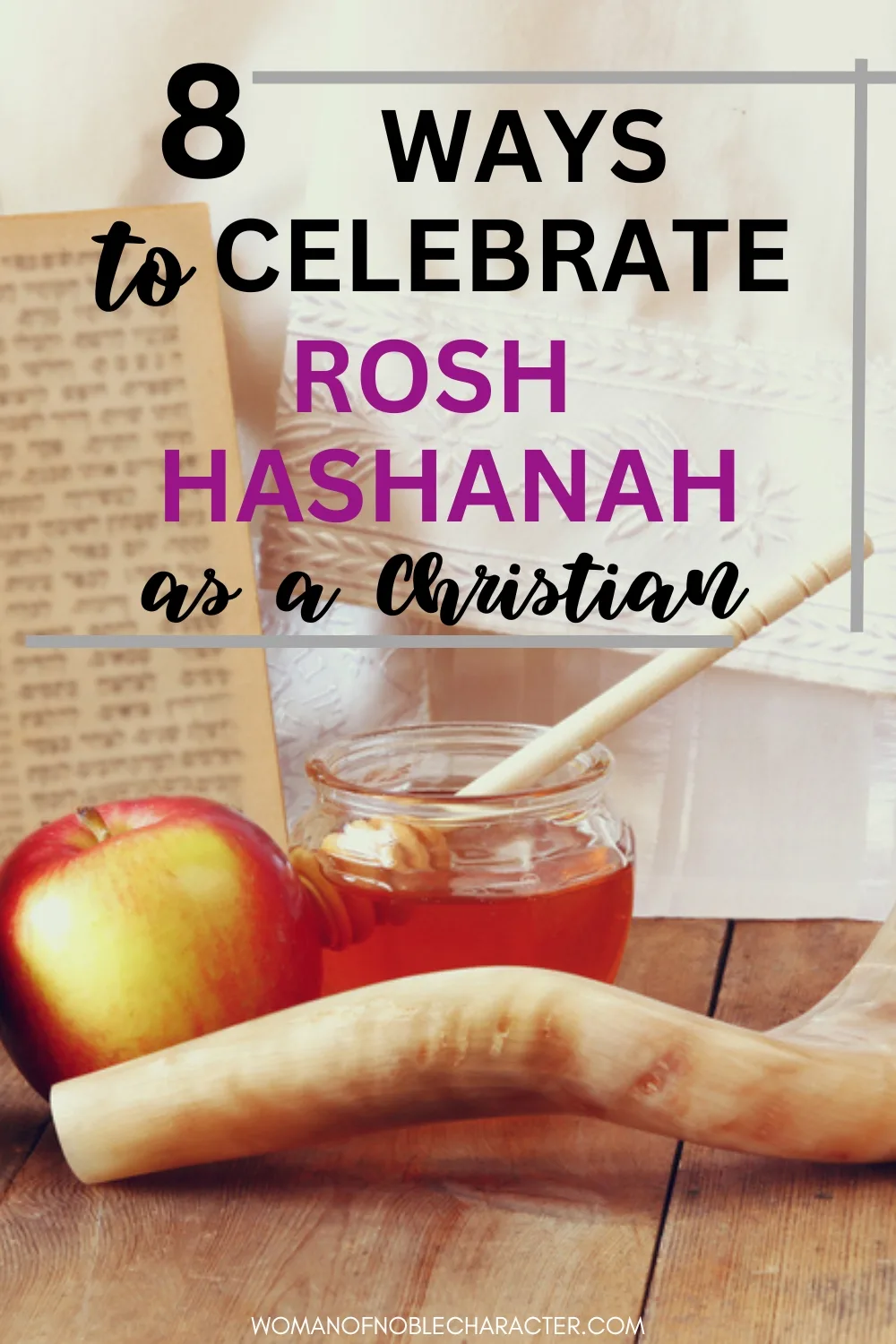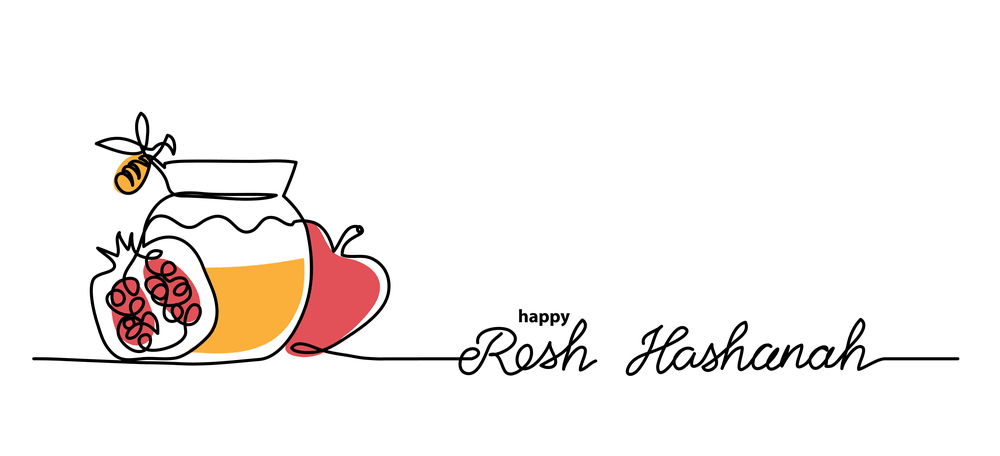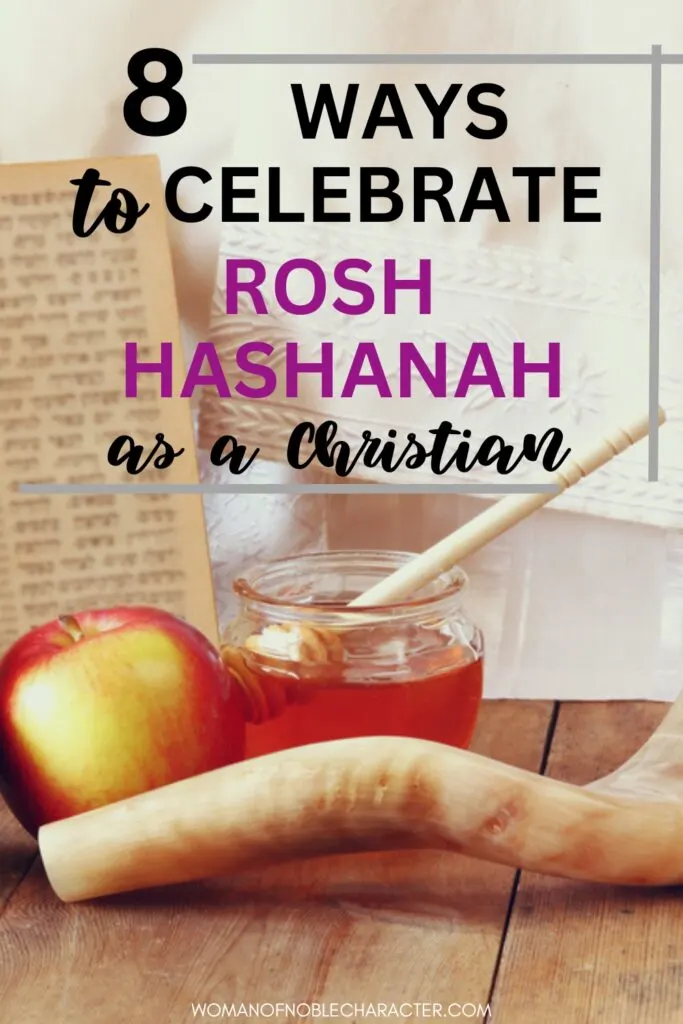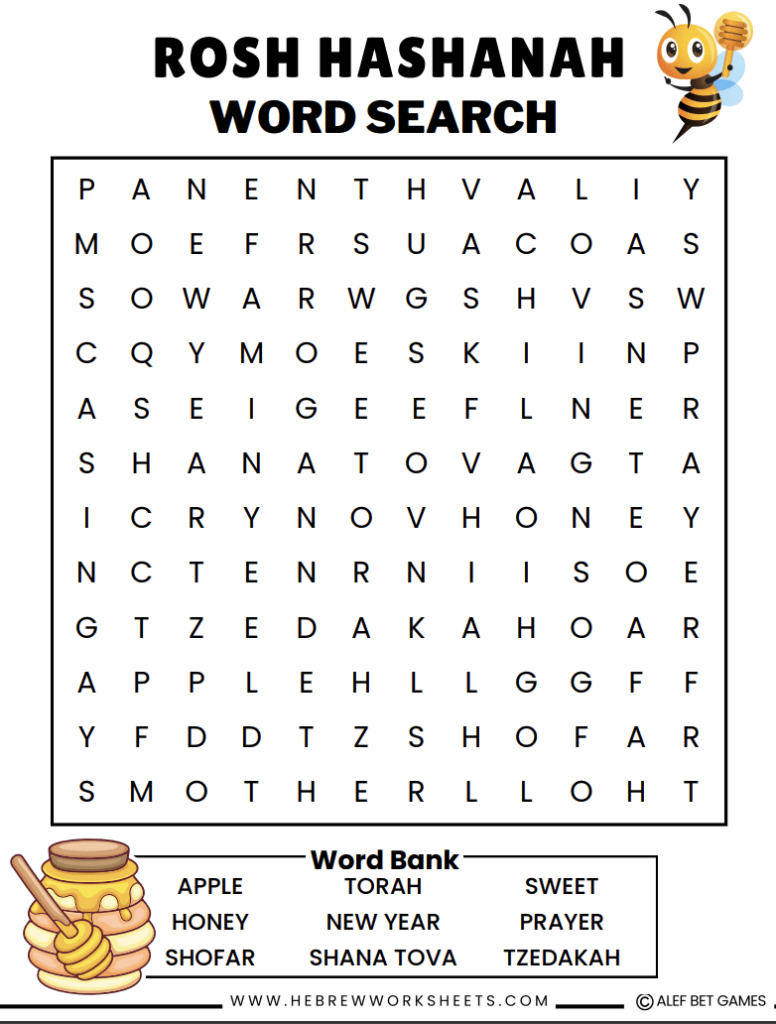This page/post may contain affiliate links. As an Amazon Associate, as well as an affiliate of other programs, this means if you purchase something using these links, I will receive a commission on qualifying purchases at no cost to you! For more detailed information, please visit our Affiliate Disclaimer page
How to Celebrate Rosh Hashanah as a Christian? Rosh Hashanah is the Jewish New Year. It’s a fall holiday that occurs on the first day of the month of Tishrei, which is the seventh month of the Jewish year. Since Judaism follows a lunar calendar, Rosh Hashanah’s date varies each year according to the Gregorian calendar, but it typically falls in early September or late September.
It is a time of celebration as well as serious introspection, a time to celebrate the end of another year while also reflecting on one’s life. Most Jewish people observe it for two days, and it includes observing many unique customs in different ways.
There are different ways that Christians can join in and celebrate Jewish holidays such as Rosh Hashanah. I will share some great suggestions below.

How to Celebrate Rosh Hashanah as a Christian
What does Rosh Hashanah mean?
Rosh Hashanah means “Head of the Year” in Hebrew. It is celebrated as the birthday of the world. The two-day festival is a time to reflect on your mistakes from the previous year and consider how you can improve yourself in the future. Since it marks new beginnings, it’s also a good time to make both big and small personal resolutions. It is a festive occasion for family and friends to gather together and exchange good deeds for the new year. The two-day holiday commemorates the anniversary of God’s creation of the world. It is the first of the High Holy Days observed by Jews in the fall.
The Biblical name for this holy day is Yom Teruah. Teruah refers to a loud shout or horn blowing by a crowd. It’s supposed to be a Sabbath day of rest. The Old Testament book of Numbers in the Bible is where it first appeared as is also mentioned in Leviticus 23:23-25. The Lord gave the following instructions to the children of Israel.
“And in the seventh month, on the first day of the month, you shall have a holy convocation. You shall do no customary work. For you it is a day of blowing the trumpets..”
Numbers 29:1 NKJV
The High Holidays Period
The two days of Rosh Hashanah symbolize the beginning of the Days of Awe also known as the Ten Days of Repentance which culminate in Yom Kippur’s major fast day, the Day of Atonement. The book of Leviticus also explains that the high priest would enter the Holy of Holies on Yom Kippur to atone for the people’s sins. This was done by sprinkling blood on the mercy seat, which is the top of the Ark of the Covenant.
Rosh Hashanah History
The origins of Rosh Hashanah can be traced back to a Biblical royal enthronement ritual, though the Bible never mentions the “New Year” or “Day of Judgment” aspects of the holiday. It is associated with the creation of the world based on the belief that the world was created in the month of Tishrei. Because of this, one of the many names of Rosh Hashanah is “yom harat olam” (the birthday of the world).
The origin of this tradition may have been adopted from the Babylonians, but the rabbis infused it with Jewish significance. Although Rosh Hashanah falls in the seventh month, it was later decided to designate it as the beginning of the year.
8 Rosh Hashanah Traditions that Christians can celebrate
Various holiday traditions are done during this time. There are different ways Christians can take part in Rosh Hashanah celebrations. If this is your first time honoring this holiday, we have some great ideas below.
1. Blowing of the Shofar
Rosh Hashanah is known Biblically as Yom Teruah or the Day of Trumpets. The sound of the shofar, or ram’s horn, is an important part of Rosh Hashanah. It represents reflection and spiritual awakening inducing us to confront our past errors and return to God who forgives and accepts us. Since it is a ram’s horn, is reminiscent of the ram offered as a sacrifice by Abraham in place of his son Isaac (Genesis 22:1-13).
Christians are reminded of the Resurrection of the Dead by the sound of the shofar or trumpet. The Lord Jesus Christ himself will come down with a loud noise as stated in the Bible. The blowing of the shofar is prophetic to the rapture that is to come.
“For the Lord himself will come down from heaven, with a loud command, with the voice of the archangel and with the trumpet call of God, and the dead in Christ will rise first.”
1 Thessalonians 4:16 (NIV)
You can blow your own shofar as a reminder of the coming of the Lord Jesus Christ. It’s a time to awaken our hearts and prepare for the judgment to come as we don’t know when it will be.
2. Candle – Lighting
To celebrate the Jewish festival, every evening during Rosh Hashanah, it is customary for the women or girls to light candles in the home. When the candles are lit, many women take time to pray for their children, and their hopes and ask God for help in raising their family. Women also take time to remember the powerful and exemplary women of the Bible such as Sarah, Rebekah, Rachel, and Leah.
As Christian women, these are great women to look up to. You can take time to read their stories or do a Bible study on their lives. Journal some of the biggest lessons from these women and commit to applying them to your own life as a mom, wife, and homemaker. Lighting candles in their honor would be optional.
3. Time of reflection
Use this time to reflect on the past year and repent of any sins committed which can be followed by a Tashlich ceremony. You can also make plans for the coming year and prayerfully choose a theme that you want to commit to for the year. Ask the Holy Spirit to help you to live a more holy lifestyle so that your name can one day be found in the Book of Life. Prioritize God in all areas of your life and let Him lead you each step of the way.
4. Perform a Tashlich ceremony
On the afternoon of the first day of Rosh Hashanah, it is customary to go to a body of water like an ocean, lake, river, sea, or pond and perform the Tashlich ceremony. Jewish people ceremonially cast their sins into the water. Some people will throw pieces of breadcrumbs or pieces of bread into the water to symbolically wash away their sins.
This is according to Micah 7:19 (NIV):
“You will again have compassion on us;
Micah 7:19 (NIV)
you will tread our sins underfoot
and hurl all our iniquities into the depths of the sea.”
As Christians, we can gather our family and friends and perform the Tashlich ceremony to remember that our sins have been paid for and removed by our Savior and Messiah Jesus Christ. You can read Hebrews 10:1-25 together as you celebrate Christ as the ultimate sacrifice for your sins. You can use stones, oatmeal, or bread to convey the message of your sins being cast off into the running water.
Tashlich serves as a representation of the freedom from sin we can experience when we turn to God in repentance and faith. It’s a reminder that God is a God of new beginnings and even if we’ve sinned he forgives us, restores us, and casts our sins from us.
5. Take time to rest
The command for Rosh Hashanah (Yom Teruah) says it’s to be a Sabbath. We live in a time when being busy is the norm but this is a great way to be intentional about resting. Take time to pray and read the word of God and connect with the Lord on a deeper level.
6. Fast and pray
You can also plan for some time to fast and meditate on God’s Word. Seek God’s face and be sensitive to the voice and teaching of the Holy Spirit. You can fast a meal or the whole day. If there’s anyone who you haven’t forgiven, take time to make amends because the Lord forgave you too. Enter into a new season by letting go of the past and focusing on a new beginning with the Lord.
“For if you forgive men their trespasses, your heavenly Father will also forgive you. But if you do not forgive men their trespasses, neither will your Father forgive your trespasses.
Matthew 6:14-15 NKJV

7. Rosh Hashanah Greetings
Wish others a “Shana Tova” which is the traditional greeting used on Rosh Hashanah that means “good year.” It’s also often said “L’Shana Tova,” meaning “to a good year” or “for a good year.” The response is the same right back – “Shana Tova”!
Older children can also join in the celebration and make a social media video and share this greeting with their friends and family during this time.
8. Eat Traditional Rosh Hashanah Foods
As Christians, we can eat the traditional foods enjoyed during this season. Symbolic foods such as the round challah in honey are eaten. Round challah is a special braided bread often sprinkled with raisins and eaten on other Jewish holidays and ceremonies, is baked in a round shape for Rosh Hashanah to symbolize the never-ending cycle of life. For Christians, this symbolizes a crown, reminding us of God’s kingship over the universe. The crown is also what Jesus wore on the cross when he died for our sins. Challah bread is dipped in honey which represents hopes for a sweet New Year.
Adding to the sweet theme, it is traditional to eat an apple dipped in honey. Honey symbolizes the desire for a sweet year which is, enjoyable, and bountiful. Sweet foods such as honey cake and cookies can also be eaten during the celebration as a desire for a sweet year.
Many people eat parts of a fish or ram’s head to express their desire that “we be a head and not a tail.”
“And the Lord will make you the head and not the tail, and you shall only go up and not down, if you obey the commandments of the Lord your God, which I command you today, being careful to do them.”
Deuteronomy 28:13 (ESV)
You can also eat pomegranates which Biblically symbolize among other things righteousness, fertility, and wisdom.
The holiday of Rosh Hashanah is one of the most important Jewish holidays celebrated in the seventh month of the Hebrew calendar by observant Jews. It marks the beginning of the Jewish new year and it includes various holiday traditions.
It’s a joyous time but also a serious time for reflection. It’s a majestic holiday in the Jewish religion filled with special greetings, special foods, and ancient traditions that have been passed down from generation to generation.
The form you have selected does not exist.
As Christians we can take part in these celebrations by reflecting on the previous year and the coming year, taking time to cast off our sins through the Tashlich ceremony, eating festive meals and sweet foods for a sweet year ahead, blowing your own shofar as a prophetic reminder of rapture among many other traditions.
You may enjoy this video What is Rosh Hashanah? Should Christians Celebrate Rosh Hashanah?
You may also enjoy this word search from Hebrew Worksheets. They have tons of great free and paid worksheets to help you or your child learn Hebrew.
ESV – “Scripture quotations are from The ESV® Bible (The Holy Bible, English Standard Version®), copyright © 2001 by Crossway, a publishing ministry of Good News Publishers. Used by permission. All rights reserved.”
NKJV – Scripture taken from the New King James Version®. Copyright © 1982 by Thomas Nelson. Used by permission. All rights reserved.
NIV – Scriptures taken from the Holy Bible, New International Version®, NIV®. Copyright © 1973, 1978, 1984, 2011 by Biblica, Inc.™ Used by permission of Zondervan. All rights reserved worldwide. www.zondervan.com The “NIV” and “New International Version” are trademarks registered in the United States Patent and Trademark Office by Biblica, Inc.™


